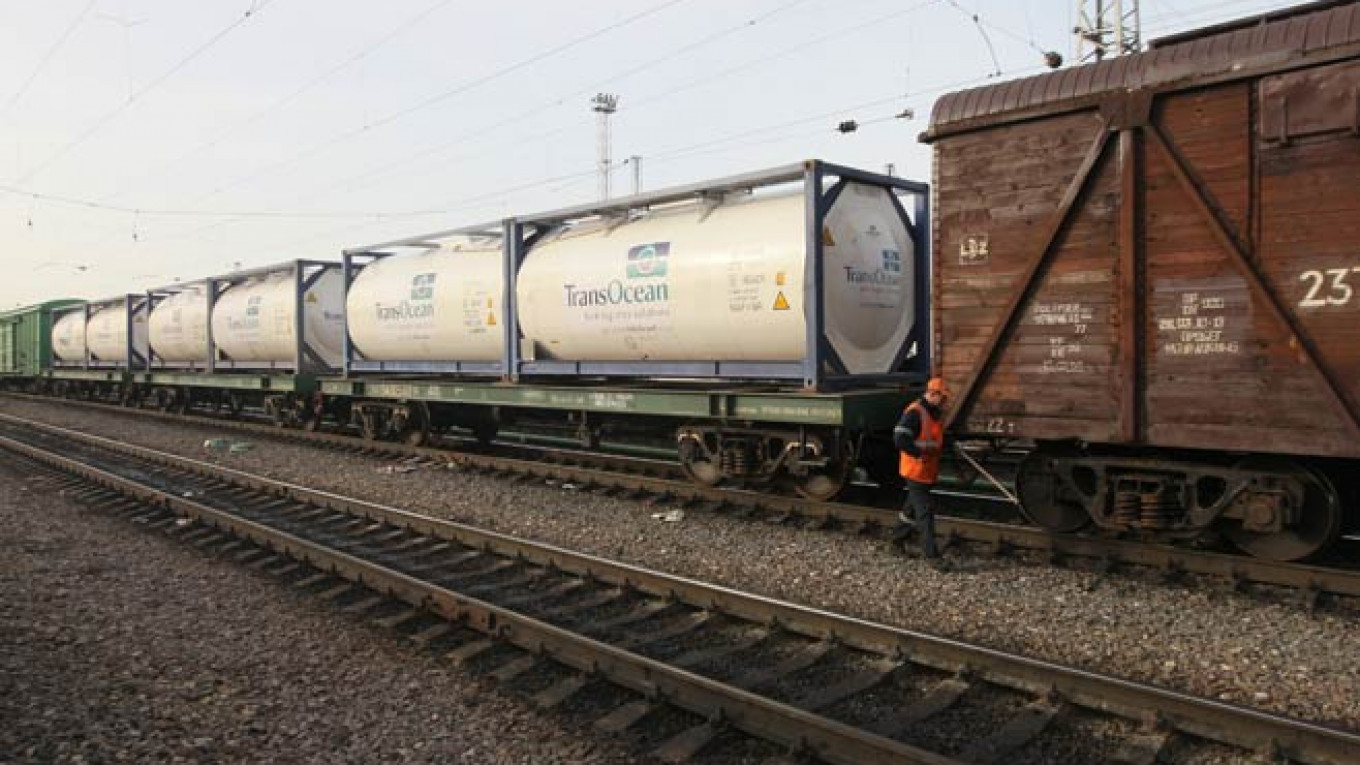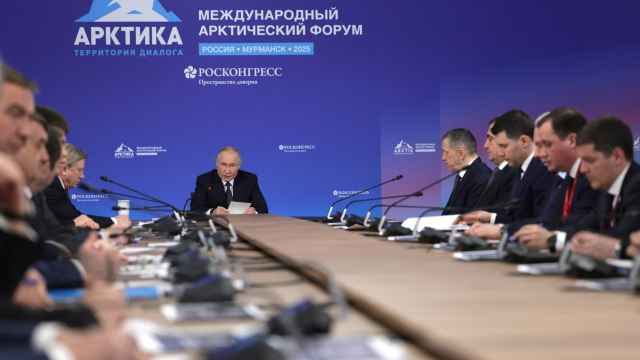Financially struggling Russian Railways will need major government support if the state-run monopoly wishes to stay competitive with air and automobile transportation, their long-term strategy said.
The document, which envisages the monopoly's strategy until 2030, was published last week along with the financial results for the first quarter under the Russian accounting standards. The strategy calls for government support, increased tariffs or a reduction of the rail network in order to the improve the company's long-term financial health.
Russian Railways reported a first-quarter net loss of more than 10 billion rubles ($278 million) over the first three months of 2014, compared to net revenue of more than 10 billion rubles a year earlier.
Company head Vladimir Yakunin earlier forecasted the losses following the government's decision to freeze the tariffs for state-regulated monopolies, which also included a freeze on gas and electricity tariffs.
Speaking at an annual board meeting of the Transportation Ministry in April, Yakunin alluded to his earlier predictions and said the losses would be "precisely the size we spoke about."
The losses, however, were lower than the 16 billion rubles Yakunin initially expected.
Nevertheless, Russian Railways will not be able to stay profitable and compete with other means of transport without substantial government support, its strategy said.
Currently, automobile transport is eating away at rail freight volumes while personal cars and air travel lure passengers away from trains, the document said.
Rail transport carried more than 44 percent of all cargo and almost a third of all passengers in 2012.
In the next 20 years, freight and passenger volumes are likely to increase but Russian Railways' analysts expect automobile transport volumes to grow twice as fast as the freight going to trains.
"As competitiveness of rail transport decreases compared with other means of transport and high-margin freight leaves the rails, this means lower revenues for the company while the overheads remain at current levels," the strategy said.
Rail infrastructure and locomotive services accounts for 74 percent of Russian Railways' overall income. To improve revenues the government should either minimize overheads by decreasing the amount of rail supervised by the monopoly or increase investment in infrastructure, the document said.
Out of all infrastructure projects the most importance was given to high-speed railways, with the proposed 1 trillion ruble project to build the Moscow-Kazan high-speed line being No.1 on Russian Railways' top priority list.
The strategy also mentioned a high-speed railway from Moscow to Adler and another one from Moscow to St. Petersburg.
The report was also pessimistic about the government's plans to privatize Russian Railways. The first 5 out of 25 percent of the company is scheduled for sale this year.
"The sale of stakes in the Federal Freight Company and other strategically important companies will lead to decreased revenues for the holding and growth of deficit of funds to invest in infrastructure projects," the strategy said.
Contact the author at a.panin@imedia.ru
A Message from The Moscow Times:
Dear readers,
We are facing unprecedented challenges. Russia's Prosecutor General's Office has designated The Moscow Times as an "undesirable" organization, criminalizing our work and putting our staff at risk of prosecution. This follows our earlier unjust labeling as a "foreign agent."
These actions are direct attempts to silence independent journalism in Russia. The authorities claim our work "discredits the decisions of the Russian leadership." We see things differently: we strive to provide accurate, unbiased reporting on Russia.
We, the journalists of The Moscow Times, refuse to be silenced. But to continue our work, we need your help.
Your support, no matter how small, makes a world of difference. If you can, please support us monthly starting from just $2. It's quick to set up, and every contribution makes a significant impact.
By supporting The Moscow Times, you're defending open, independent journalism in the face of repression. Thank you for standing with us.
Remind me later.






